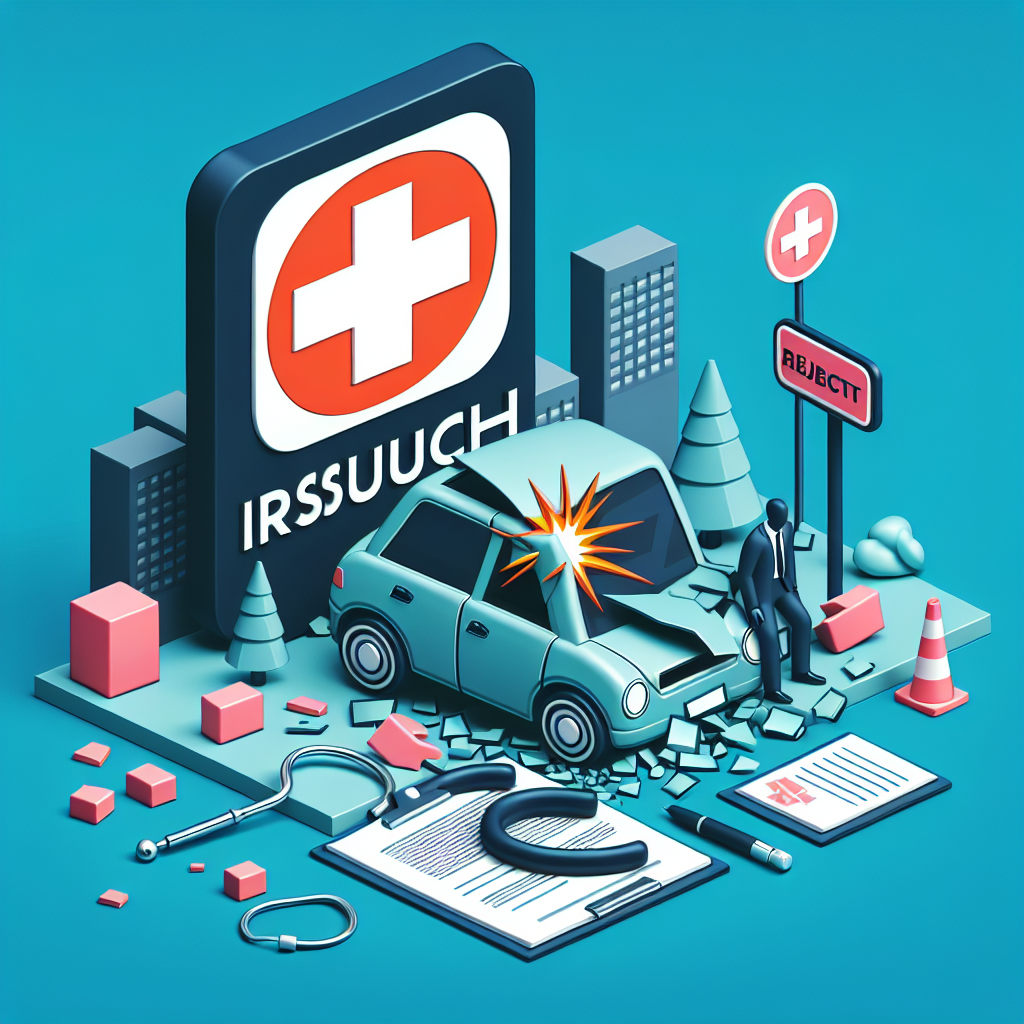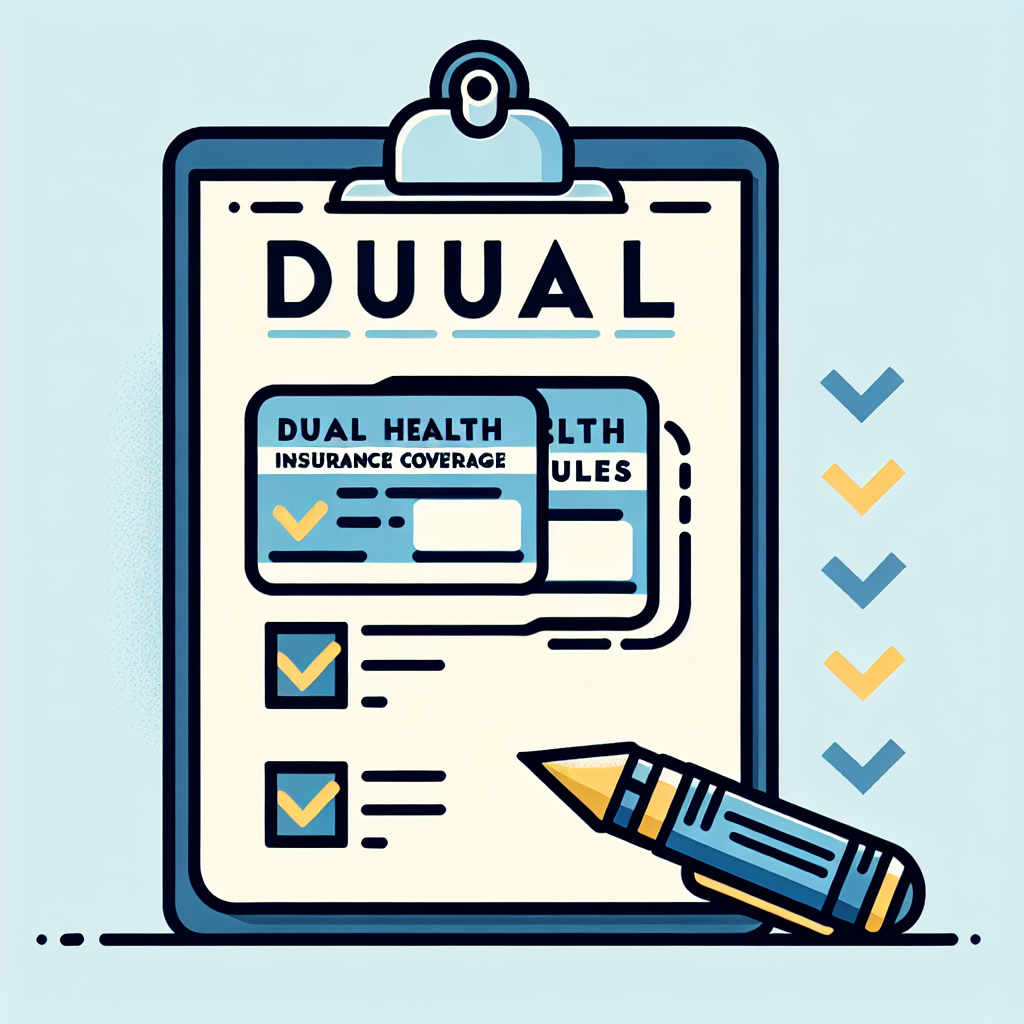Filed under Health Insurance on
Navigating Health Insurance Claims After Auto Accidents

Dealing with the aftermath of an auto accident can be a daunting experience, especially when navigating health insurance claims following the incident. Amid the physical recovery and potential legal processes, the complexity of health insurance claims can add an extra layer of stress. To help simplify this ordeal, we’ll explore the steps and strategies you need to effectively manage health insurance claims after an auto accident.
Understanding What Health Insurance Covers After an Auto Accident
When you're involved in an auto accident, there are several types of insurance policies that might come into play. However, understanding the role of your health insurance in this scenario is critical. Generally, health insurance covers medical expenses resulting from the accident, but knowing the specifics of your policy is crucial for ensuring that you take full advantage of the benefits it offers.
It’s important to remember that your health insurance is primary when it comes to medical treatments, unless you also have a medical payments coverage or personal injury protection (PIP) in your auto insurance, which might serve as primary coverage. Clear communication with your insurance providers is essential to determine which policy applies first.
How to File a Health Insurance Claim After an Auto Accident
Filing a health insurance claim after an auto accident involves several steps to ensure that your medical bills are appropriately covered. Here is a systematic approach:
1. Collect Necessary Information
- Immediately after the accident, collect all relevant information including the other driver’s insurance details, accident report from the police, and contact information of any witnesses.
- Obtain a comprehensive list of all medical services received and associated costs.
- Keep a detailed record of all medical treatments and expenditures, as these documents will be crucial when filing your claim.
2. Notify Your Health Insurance Provider
- Contact your health insurance company as soon as possible to inform them about the accident and subsequent medical expenses.
- Ask for a detailed explanation of your policy's coverage regarding auto accidents.
- Clarify whether any pre-authorization is required for specific treatments.
3. Submit a Claim
- Complete the necessary claim forms provided by your insurer. Attach all requested documentation, including medical bills, reports, and any other relevant documentation.
- Submit your claim forms by the deadlines specified by your insurer to avoid denied claims due to late filing.
Following these steps proactively can streamline your claims process and minimize complications. Always ensure correspondence with your insurance provider is documented to maintain transparency and accountability throughout the process.
Coordination Between Auto and Health Insurance
Coordination of benefits is an essential process to avoid duplicate payments when you have multiple insurance coverages. For instance, if your auto insurance has a PIP or MedPay feature, these could cover your initial medical costs, reducing out-of-pocket expenses and potential waiting periods.
Real-life example: Marissa, a school teacher, was involved in a fender bender. Her PIP coverage paid for her immediate medical care, thereby allowing her health insurance to cover follow-up treatments without additional out-of-pocket expenses. By effectively coordinating her policies, Marissa saved on medical expenses and experienced few delays in treatment.
Common Challenges and Solutions in Health Insurance Claims
Despite following all procedures accurately, you might still face challenges in the claims process. Here are some common hurdles and how to overcome them:
Denied Claims
- Reason: Insufficient documentation or delayed submission.
- Solution: Review the denial letter carefully, address the exact reasons for the denial, and provide additional documentation or an appeal if necessary.
Delays in Reimbursement
- Reason: Incomplete forms or errors in submission.
- Solution: Regularly follow up with your insurer and verify all claims details before submission to reduce processing time.
Understanding Coverage Limits
- Reason: Policy language can be complex and hard to decipher.
- Solution: Contact your insurance provider for a clear, simplified explanation and consult with a specialist or attorney if necessary.
Practical Tips for Navigating Health Insurance Claims
- Maintain Documentation: Keep a comprehensive log of all communications with insurers, medical providers, and any legal correspondence.
- Segregate Medical Expenses: Understand which policy covers what, and segregate expenses accordingly to avoid processing delays.
- Seek Professional Help: When in doubt, consider consulting with a professional claims advisor or attorney.
- Focus on Recovery: While handling the claims process, don't forget to prioritize your recovery and follow all medical advice diligently.
FAQ
1. What should I do immediately after an auto accident regarding health insurance?
First, seek medical attention. After that, notify your health insurance provider about the accident as soon as possible. Gather all medical records, bills, and other relevant documents to aid in the claims process. Ensure you understand your policy coverage related to auto accidents.
2. How does primary and secondary insurance work after an auto accident?
In many cases, your health insurance acts as a secondary insurer, paying for medical costs that your primary (auto insurance) doesn’t cover. It's essential to understand the coordination of benefits to prevent denial of claims and ensure adequate coverage.
3. Can I use both my auto and health insurance after an accident?
Yes, you can utilize both your auto and health insurance for covering medical expenses. Typically, auto insurance PIP or MedPay will cover initial costs, and your health insurance can cover extended or remaining expenses beyond the auto coverage.
4. What’s the role of MedPay or PIP in my auto insurance after an accident?
MedPay and PIP are designed to cover immediate medical expenses resulting from an accident, regardless of fault, thus acting primarily before health insurance steps in. They often cover deductibles and out-of-pocket costs from your health insurance plan.
5. How can I appeal a denied health insurance claim after an auto accident?
If your claim is denied, review the denial letter for reasons. Gather missing documentation or address issues cited, then resubmit or appeal the claim. Contact your insurer’s customer service for guidance and consider consulting an attorney if necessary.
Navigating health insurance claims after an auto accident doesn’t have to be excessively stressful. With proper preparation, clear communication, and a strategic approach, you can successfully manage the claims process, ensuring you receive the necessary medical care without enduring undue financial burden.





